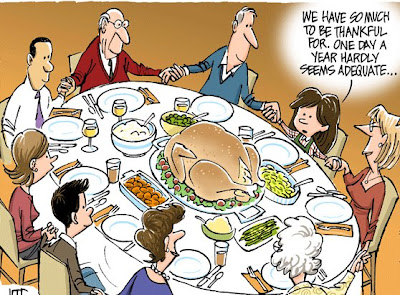“If any one faculty of our nature may be called more wonderful than the rest, I do think it is memory. There seems something more speakingly incomprehensible in the powers, the failures, the inequalities of memory, than in any other of our intelligences. The memory is sometimes so retentive, so serviceable, so obedient; at others, so bewildered and so weak; and at others again, so tyrannic, so beyond control! We are, to be sure, a miracle every way; but our powers of recollecting and of forgetting do seem peculiarly past finding out.”
---Jane Austen, in
Mansfield Park
~~~~~~~~~~~~~~~~~~~~~~~~~~~~~~~~~~~~~~~~~~~
“Direct and honest communication by an intelligent writer is more nourishing than partisan, dishonest theory.”
---Marc Smirnoff, editor of
The Oxford American
~~~~~~~~~~~~~~~~~~~~~~~~~~~~~~~~~~~~~~~~~~~
“As I’m writing, I’m always reader-conscious. I have one reader in mind, someone who is in the room with me, and who I’m talking to, and I want to make sure I don’t talk too fast or too glibly. Usually I try to create a hospitable tone at the beginning of a poem. Stepping from the title to the first lines is like stepping into a canoe. A lot of things can go wrong.”
---Billy Collins
~~~~~~~~~~~~~~~~~~~~~~~~~~~~~~~~~~~~~~~~~~~~~
“I thought I’d save it for the weekend, but maybe, just take a peek at it that night, you know, just to confirm my original suspicions. Five hours later, I’m a third of the way through the book. By the end of the weekend, I’m forcing myself to slow down so I won’t gobble the whole thing.”
---Sarah Prickett, about Elizabeth Gilbert’s
Eat, Pray, Love~~~~~~~~~~~~~~~~~~~~~~~~~~~~~~~~~~~~~~~~~~~~~
“If there’s anything more punishing than writing a book, it’s being married to someone who’s writing a book.”
---Meghan Daum, essayist and novelist
~~~~~~~~~~~~~~~~~~~~~~~~~~~~~~~~~~~~~~~~~~~~~
From Steve Kowit’s poem, “The Grammar Lesson”:
“See? There’s nothing to it. Just
memorize these rules . . . or write them down!
A noun’s a thing, a verb’s the thing it does.” (16-18)
Kinda reminds you of
Grammar Rock, doesn’t it?
~~~~~~~~~~~~~~~~~~~~~~~~~~~~~~~~~~~~~~~~~~~~~
“Monet Refuses the Operation”
Doctor, you say that there are no haloes
around the streetlights in Paris
and what I see is an aberration
caused by old age, an affliction.
I tell you it has taken me all my life
to arrive at the vision of gas lamps as angels,
to soften and blur and finally banish
the edges you regret I don't see,
to learn that the line I called the horizon
does not exist and sky and water,
so long apart, are the same state of being.
Fifty-four years before I could see
Rouen cathedral is built
of parallel shafts of sun,
and now you want to restore
my youthful errors: fixed
notions of top and bottom,
the illusion of three-dimensional space,
wisteria separate
from the bridge it covers.
What can I say to convince you
the Houses of Parliament dissolve
night after night to become
the fluid dream of the Thames?
I will not return to a universe
of objects that don't know each other,
as if islands were not the lost children
of one great continent. The world
is flux, and light becomes what it touches,
becomes water, lilies on water,
above and below water,
becomes lilac and mauve and yellow
and white and cerulean lamps,
small fists passing sunlight
so quickly to one another
that it would take long, streaming hair
inside my brush to catch it.
To paint the speed of light!
Our weighted shapes, these verticals,
burn to mix with air
and changes our bones, skin, clothes
to gases. Doctor,
if only you could see
how heaven pulls earth into its arms
and how infinitely the heart expands
to claim this world, blue vapor without end.
~ Lisel Mueller ~
(
Sixty Years of American Poetry, The Academy of American Poets)
~~~~~~~~~~~~~~~~~~~~~~~~~~~~~~~~~~~~~~~
Happy Reading!


































